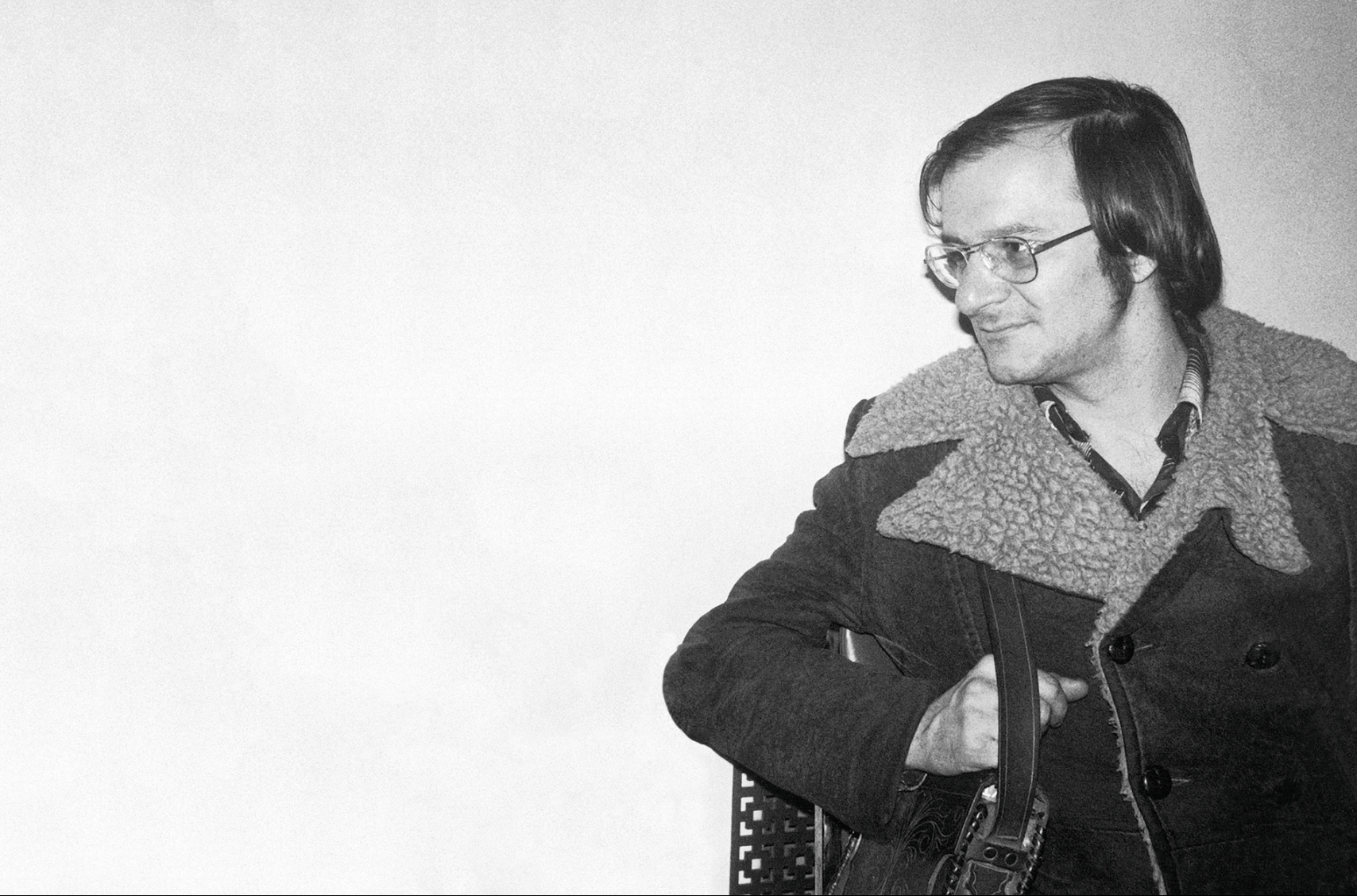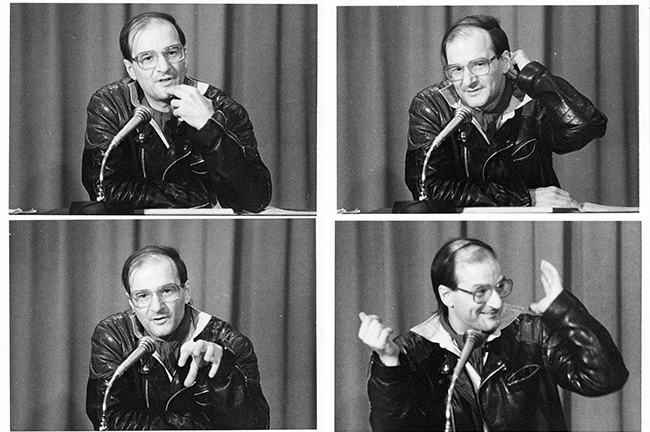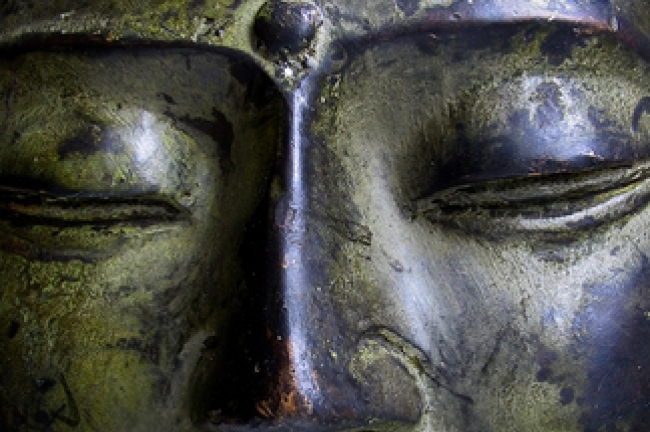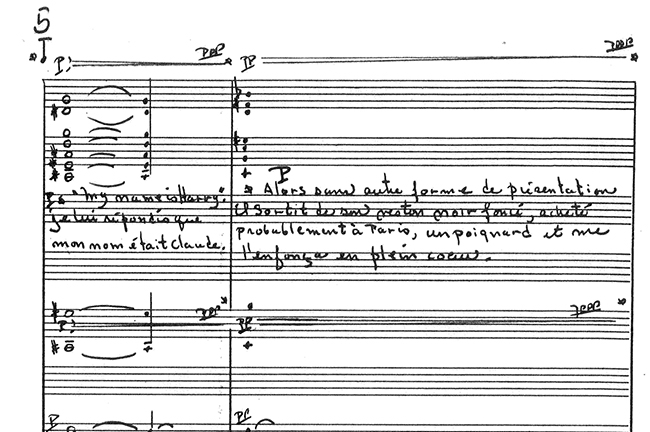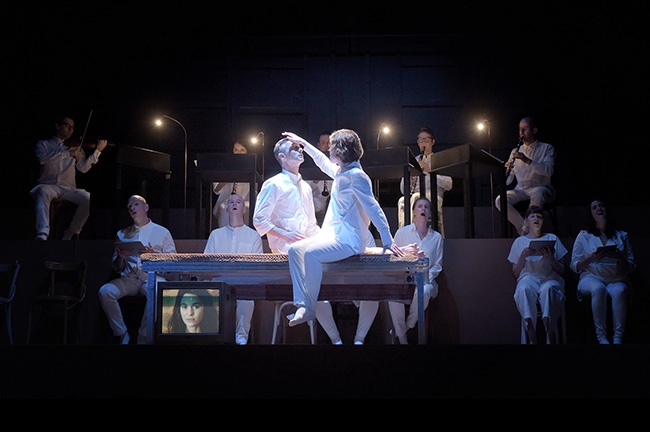Claude Vivier’s life could be straight from the realm of fiction. He was born in Montreal on April 14, 1948, an orphan who never knew his parents, and at the age of two was adopted by Jeanne and Armand Vivier. He was thought to be deaf and dumb, but at the age of six began to speak. His childhood was a harsh, tough business in a working-class district. The one source of distraction was the world of dreams and wonderment.
“I have been, am, and will always be, immortally and eternally, a child.” Vivier invariably returned to the subject of childhood: the pre-linguistic phase, then baby talk, invented language, a pure and universal language as existed before the Tower of Babel, for a dialogue with angels, in the solitary silence of a bedroom, in the evening, for love both candid and absolute, in a quest for different beginnings, for enchantment in a wonderland with goblins, giants and diverse heroes from fairytales, and to be found later, for example in his opera Kopernikus; and in the form of a lullaby, as could be sung by a celestial mother so sorely needed, as an ode to the night, the promise of rebirth, somewhere between dreams and the dread and fear of the dark.
Vivier’s education as a boarder with the Marist Brothers led him to believe he had a religious vocation, and he entered the Saint-Vincent-de-Paul seminary. There, at midnight mass, he discovered music. His compositions, marked by religious subjects, are imbued with ritual, vast feeling and an ardent belief in the immortality of the soul. This mysticism soon developed into a belief somewhere between Christianity and Asian teachings, an art aspiring to the rank of the gods, combining music and prayer as choral works and psalms, until achieving a form of purification both mysterious and incantatory. Claude Vivier was asked to leave the seminary, the reason given being his immaturity, in other words his over-sensitive, nervous temperament was deemed unsuitable, and this failure was to bring its own torments. In 1967, he enrolled at the Montreal Conservatoire, studying piano with Irving Heller, and composition with Gilles Tremblay. Here he experienced what he described as his second birth, born into the world of music.
With grants and scholarships from the Canada Council for the Arts, he continued his studies in Europe, at the Institute of Sonology in Utrecht (1971), in Paris (1972) in the class of Paul Méfano, and in Cologne (1972-1974) where Karlheinz Stockhausen and his works Stimmung and Inori were to be a seminal influence. With Stockhausen, Vivier experienced his third birth, born to composition. Stockhausen, who was working on his concept of formula composition, provided Vivier with the final proof needed to convince him that each work came from an original tune, sung again and again, developing by itself and determining both the larger form and the smaller detail. Pulau Dewata and Orion are eloquent examples of this.
Vivier, as was the case for so many of the same generation, was interested in the wisdom of India (as seen with his work Siddhartha based on the novel by Hermann Hesse). He traveled through Asia in 1976 and 1977, to Japan, Thailand, Iran and, most importantly, Bali where he stayed for three months, learning not only many aspects of musical technique, but also the principle of embracing art as part of everyday life. “It became patently obvious that in the end my travels were quite simply a journey of self-discovery, exploring my inner self.” These travels produced Shiraz and Bouchara.
Music is love, love of nature and of human beings, of intensity unparalleled, or only paralleled by the sense of death to come, or the voluptuousness of dying from love. Vivier’s compositions therefore did not spurn melodrama or pathos, or profound meditation on the afterlife, dissipating the distance between life and afterlife. Vivier returned to Paris where, in 1979 and 1980, he discovered the spectral music of Tristan Murail and Gérard Grisey, and the impact was immediate and far-reaching. He was interested in film, and in 1981 made a video, L’Homme de Pékin |The Man from Beijing]. He became an avid reader of Marguerite Duras and Roland Barthes, and planned an opera on the life of Tchaikovsky. Claude Vivier’s life and loves were fraught with danger, and one night in Paris, on March 7-8, 1983, at the age of thirty-four, he was murdered. His last and unfinished work was Glaubst du an die Unsterblichkeit der Seele? [Do you believe in the immortality of the soul?]
Laurent Feneyrou
The “Portrait of Claude Vivier” is being presented with support from the Ernst von Siemens Foundation for Music and the Canadian Cultural Centre in Paris.

